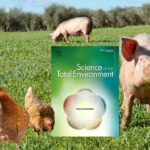
IKEA stops marketing its “air purifying” curtains containing nanoparticles of titanium dioxide
Our members and most loyal readers will recall that in March 2019, AVICENN began conducting tests on the IKEA “air purifying” curtains. The Swedish company did not give any indication of their composition, but AVICENN had suspected the presence of titanium dioxide nanoparticles (TiO₂) known for the photocatalytic properties touted in the advertising of this product, even before it was put on the market in 2020.
Since then, our questions to IKEA had gone unanswered; only the Swiss supplier, HeiQ had taken the time to assure us that the “mineral” applied to the curtains was “micro” and not nano (without further clarification on its nature: TiO₂ or other?).
AVICENN wanted to know for sure and had the curtains tested: a large number of TiO₂ nanoparticles were found on the surface (100% below the 100 nanometer mark). AVICENN then initiated other tests to know the depolluting efficiency of the curtains.
When in May, we wanted to order another pair for further testing, we discovered that the curtains were no longer available. This time, IKEA replied to our email: yes, the curtains were indeed withdrawn from sale, because they did not purify the air as expected. AVICENN asked the company whether it would communicate publicly about the withdrawal and/or warn consumers who had already purchased them. As a reminder, these curtains were featured on the cover of their latest 2020/2021 paper catalog and TiO₂ was classified as a suspected category 2 human inhalation carcinogen in 2019.
Our information sheets to go further
Other news on the subject…
Upcoming Nano Agenda
- Introductory seminar on the principles of Life Cycle Assessment (LCA) and its specificities when applied to nanomaterials (metal nanoparticles, oxides, etc.), from their production to their end-of-life.
- Organizer: NaMasTE research group (Manufactured Nanomaterials, Toxicology, Ecotoxicology and Risks: Towards Controlled Development)
- Speaker: Gaetana (Tania) Quaranta, Senior Lecturer, University of Strasbourg – IPHC
- Website: https://gdr-namaste.cnrs.fr/

- Webconference for analysis laboratories, plant fertilizer manufacturers and distributors, public authorities…
- Moderated by David Krupka, nanotechnologies development manager at AFNOR Normalisation and Emilie Langlois-Bertrand, nantechnologies standardization project manager.
- In partnership with Armand Masion (CEREGE) and Patrice Charpentier (ANSES).
- This exchange will also be an opportunity to explore the creation of a national platform to identify standardization needs.
- Website: https://www.afnor.org/evenements/qualite/nanotechnologies-agriculture-cadre-pratique-responsable

- International conference on metallic nano-objects for experts working in the interdisciplinary field of metallic nanoparticles, with a particular emphasis on nanoparticle synthesis and characterization, plasmonics, optics and photonics, catalysis, biomedicine, electronics, and nanoparticle recycling
- Organizers / Partners: CNRS, Bordeaux University, Bordeaux INP, ICMCB, CRPP, CBMN, ISM
- Website: https://mno2026.sciencesconf.org



